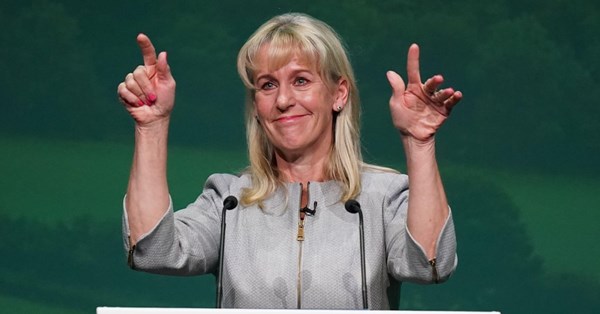THE “almost complete lack of strategic rural policy or effective rural-proofing in government decision-making” was the focus of comments by the Bishop of St Albans, Dr Alan Smith, in the House of Lords last week.
Speaking in a debate on farming and rural communities, he declared an interest as president of the Rural Coalition, “which has tried to work alongside government over many years to put some positive ideas, initiatives, and facts and figures on the table to help us achieve the growth in the rural economy that we believe we need”.
He lamented that there was “no guidance on the delivery of affordable housing in rural communities” from the Government, and how “this year’s local-government-funding settlement once again leaves rural local government underfunded.” He was concerned that “the rural industry is not really being considered in the Government’s drive for growth. What a waste.
“If these communities are left behind again — 20 per cent of the population live in rural areas and over 500,000 businesses are registered there — we will all be the poorer for it, and the entire nation will lose out.”
The Bishop of Hereford, the Rt Revd Richard Jackson, clarified his credentials as speaking from “the most rural diocese in the Church of England”. He also explained his pre-ordination career as “an agronomist, advising farmers on all aspects of crop production, translating scientific research into practical solutions.
“However, over 40 years of involvement in the sector, I can honestly say that I have never seen morale so low nor such disillusionment with the Government’s capacity to understand and respond to the needs of the agricultural industry. A thriving agri-farming industry is essential to the wider health of the rural economy. Family farms are at the heart of this ecology.
“Foremost in my mind are the men and women who provide the food we eat and who work in an industry that is extraordinarily demanding. In all weathers, with a woeful return on capital and working hours that would be unacceptable in almost any other walk of life, they produce the most basic staples of life. Theirs is the mental health and well-being undermined by the proposed taxation policy. They feel ignored, misunderstood, and marginalised. I urge the Government to ensure that this community’s voice is heard and responded to.”
Introducing the debate, Lord Roborough (Conservative) had outlined the scope of the problem. “The list of negative spending and taxation decisions by this Government on farming and rural communities is long. The cumulative impact is devastating on the financial and mental well-being of farmers in particular, but also the wider rural community,” he said.
“The reduction in inheritance tax reliefs under agricultural property relief and business property relief remains a hugely emotive and damaging subject.” The drop in Sustainable Farming Incentive and delinked payments was also life-threatening, along with planning decisions such as compulsory purchase of land.
Baroness Coffey (Conservative), a former Secretary of State in the Department for the Environment, Food and Rural Affairs (DEFRA) spoke about agrarianism. “We need farmers. We need landowners and rural communities to help not just with food production but with the future of our planet. It is about the topsy-turvy difficulties with which they are living — and our farmers are the original friends of the earth.”
Lord Teverson (Liberal Democrat) wanted to acknowledge Dr Smith as “a true champion of rural affairs, particularly as chair of the Rural Coalition, because the rural economy is often forgotten about. It is important. It is not just farming; it is coastal fisheries, all the SME environment, and much more. There are big challenges there, as he said.”
Summing up she part she plays as a DEFRA minister, Baroness Hayman (Labour) said: “One of the underlying problems for farmers and the wider rural community is simply that farmers do not make enough money for the hard work and commitment they put in. One of our commitments is to make farming more profitable. . . The Government have made a commitment that all policy decision-making should be rural-proofed.”
Lord Roborough, in his concluding speech, suggested that “the Bishop of Hereford summed up the mood in the countryside. There is an all-time low in morale, which means there is a huge opportunity for this Government to improve things.”
















